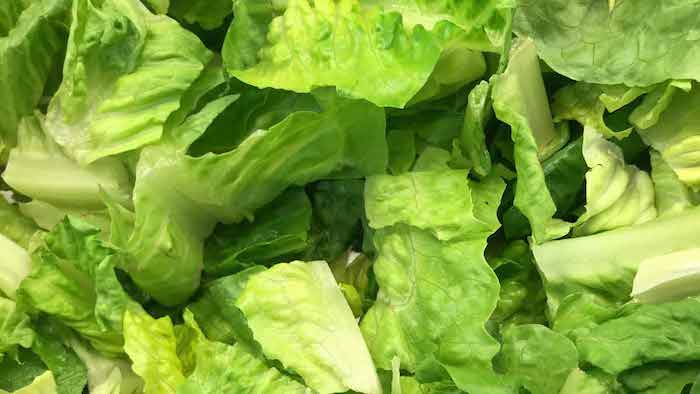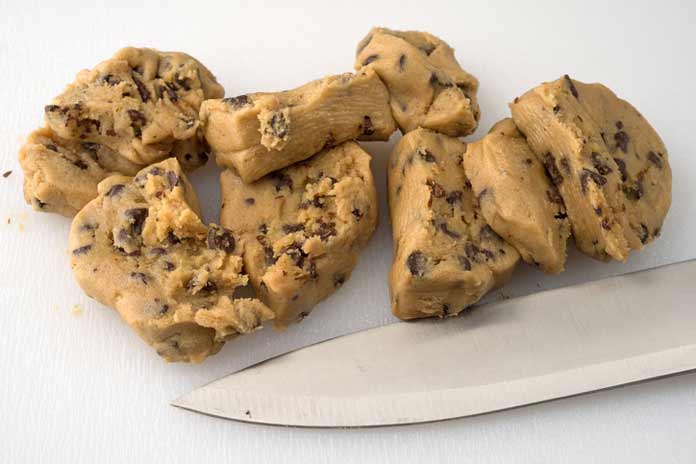Our law firm has helped people in Iowa get compensation for E. coli food poisoning. For a free consultation, please call toll-free 1-888-377-8900, send a text to 612-261-0856, or complete this form.
STEC E. coli and Hemolytic Uremic Syndrome (HUS)
Some strains of E. coli cause illness in humans by producing a poison called a Shiga toxin that damages the intestines and kidneys. These infections can cause serious illness that sometimes has long-term health effects.
In the U.S., E. coli O157:H7 is the most commonly identified Shiga toxin-producing E. coli (STEC), but it’s not the only one. STEC strains O26, O111, O103, O121, O45, and O145 account for a combined total of roughly 80 percent of “non- O157:H7” illnesses in the U.S.
Between 5 percent and 10 percent of E. coli patients develop a potentially fatal complication called hemolytic uremic syndrome (HUS), a form of kidney failure. Most often HUS affects children under 5. Treatment for HUS includes blood transfusions, dialysis, plasma exchange, and kidney transplant. HUS symptoms usually develop a week after initial E. coli symptoms. Anyone who develops HUS symptoms should seek immediate emergency care. HUS symptoms include:
- Pale skin
- Unexplained bruising
- Extreme fatigue
- Swelling in legs, feet, or ankles
- Shortness of breath
- Decreased urination
- Bloody diarrhea
- Bleeding from the nose or mouth,
- Seizures
- Stroke
Children who develop HUS are often in excruciating pain. Recovery is usually slow. Many children never fully recover. Because HUS can cause life-long illness and patients may need future surgeries and other medical care, compensation for HUS patients needs to include amounts for future medical expenses and future pain and suffering.
Recent Iowa E. coli, HUS Cases
2021 Maquoketa E. coli Outbreak
At least three children from Maquoketa, Iowa have been recently hospitalized with HUS. The patients, ages 18 months, 2 years and 12 years old all underwent dialysis treatments during their lengthy hospital stays.
2020 E. coli O103 Clover Sprout Outbreak
In 2020, three people in Iowa were part of a 10-state E. coli O103 clover sprout outbreak that sickened 51 people. Three people were hospitalized. The sprouts were produced by Chicago Indoor Garden and served at Jimmy John’s sandwich shops. The number of cases reported from each state was FL (1), ID (1), IL (7), IA (3), MO (1), NY (1), TX (1), UT (34), VA (1) and WY (1).
2019 E. coli O103 Clover Sprout Outbreak
In 2019, 22 people in Iowa were sickened in an E. coli O103 outbreak linked to sprouts produced by Sprouts Unlimited and sold at Jimmy John’s sandwich shops. The outbreak prompted the U.S. Food and Drug Administration (FDA) to issue warning letters to both companies as Jimmy John’s had been linked to numerous food poisoning outbreaks linked to sprouts and cucumbers.
2019 Salinas Grown Romaine E. coli O157:H7 Outbreak
In 2019, Iowa was one of 27 states included in a romaine lettuce E. coli outbreak that sickened 167 people. Eighty-five people were hospitalized, 15 with HUS. “This outbreak is the third in three years to be caused by the same strain of E. coli in romaine lettuce from Salinas and it’s the third in three years to end unresolved,” said Food Safety Lawyer Fred Pritzker.
In addition to the same E. coli strain, the two other outbreaks, one in 2018 that sickened 62 people and one in 2017 that sickened 25, shared other similarities. In all three outbreaks, the FDA stated it had been unable to identify a common grower, supplier, distributor, or brand of romaine lettuce that could explain all of the illnesses.
Although tests on samples from the farms yielded no clues, the outbreak strain was found in actual products and one recall was issued. A cluster of illnesses in Maryland was linked to Ready Pac Bistro Bowl Caesar Chicken Salads sold at Sam’s Club stores. After state health officials found the outbreak strain in an unopened package at a patient’s home, Missa Bay issued a recall of the pre-packaged romaine salads containing meat and chicken.
A few weeks later, the Wisconsin Department of Health Services found the outbreak strain of E. coli O157:H7 in an unopened bag of Fresh Express brand Leafy Green Romaine collected from a patient’s home. Fresh Express did not issue a recall.
The people sickened in this outbreak ranged in age from less than 1 year to 89 years old. The number of cases reported for each state is as follows: Arizona (4), California (8), Colorado (6), Delaware (1), Florida (4), Iowa (1), Idaho (4), Illinois (15), Maryland (5), Michigan (2), Minnesota (7), Montana (1), North Carolina (3), Nebraska (2), New Jersey (9), New Mexico (2), New York (3), Ohio (12), Oregon (1), Pennsylvania (21), South Carolina (1), South Dakota (1), Tennessee (1), Texas (6), Virginia (6), Washington (6), and Wisconsin (35).
2018 Yuma-Grown Romaine E. coli Outbreak
In 2018, romaine lettuce grown in Yuma, AZ was linked to an outbreak that sickened 210 people, almost half of whom were hospitalized. Twenty-seven people developed HUS, five people died. It was 2006, when a similarly sized outbreak linked to spinach killed five people, that a leafy greens E. coli outbreak was so lethal.
Case totals from each state were: Alabama (3) Alaska (8), Arkansas (1), Arizona (9), California (49), Colorado (3), Connecticut (2), Florida (3), Georgia (5), Idaho (12), Illinois (2), Iowa (1), Kentucky (1), Louisiana (1), Massachusetts (4), Michigan (5), Minnesota (12), Mississippi (1), Missouri (1), Montana (9), Nebraska (1), New Jersey (8), New York (11), North Carolina (1), North Dakota (3), Ohio (7), Oklahoma (1), Oregon (1), Pennsylvania (24), South Dakota (1), Tennessee (3), Texas (4), Utah (1), Virginia (1), Washington (8), and Wisconsin (3).
Most of the people included in this outbreak ate romaine lettuce at restaurants including Panera Bread, Red Lobster, Papa Murphy’s and Texas Road House. The E. coli lawyers at Pritzker Hageman filed E. coli lawsuits seeking compensation for medical bills, lost income, pain and suffering, and other damages, on behalf of some of the victims.
2016 Gold Medal Flour E. coli O26 and O121 Outbreak
In 2016, an E. coli O26 and E. coli O121 outbreak linked to recalled Gold Medal flour sickened 63 people from 24 states. Seventeen of those sickened were hospitalized, one person developed HUS.
The patients ranged in age from 1 to 95, half of them were 18 and under. The implicated flour was produced at a General Mills facility in Kansas City, Missouri. The number of cases reported from each state was: Alabama (1), Arkansas (1), Arizona (3), California (3), Colorado (4), Iowa (2), Illinois (4), Indiana (1), Massachusetts (3), Maryland (1), Michigan (4), Minnesota (7), Missouri (1), Montana (2), Nebraska (1), New York (4), Oklahoma (3), Oregon (1), Pennsylvania (2), Tennessee (1), Texas (2), Virginia (3), Washington (5), and Wisconsin (4).
2012 Clover Sprout E. coli O26 Outbreak
In 2012, Iowa was one of 11 states included in an E. coli O26 outbreak linked to clover sprouts served at Jimmy John’s sandwich shops. Twenty-nine people were sickened, seven people were hospitalized. The case count from each state was: Alabama (1), Arkansas (1), Iowa (5), Kansas (2), Michigan (10), Missouri (3), Ohio (3), Pennsylvania (1), Washington (1), Wisconsin (1), and West Virginia (1).
2010 Beef E. coli O157:H7 Outbreak
In 2010, one person in Iowa was part of a 16-state E. coli O157:H7 linked to beef produced by National Steak and Poultry. Nine people were hospitalized, one person developed HUS. The beef was served at restaurants. The number of cases reported from each state was: CA (1), CO (1), FL (1), HI (1), IA (1), IN (1), KS (1), MI (1), MN (3), NV (1), OH (2), OK (1), SD (2), TN (1), UT (2), and WA (1).
2009 Pre-packaged Cookie Dough E. coli Outbreak
In 2009, two people in Iowa were sickened in a 30-state E. coli O157:H7 outbreak linked to pre-packaged cookie dough. Of the 72 people sickened, 34 were hospitalized, 10 of them with HUS.
The case count from each state was: Arizona (2), California (3), Colorado (6), Connecticut (1), Delaware (1), Georgia (1), Iowa (2), Illinois (5), Kentucky (2), Massachusetts (4), Maryland (2), Maine (3), Minnesota (6), Missouri (1), Montana (1), North Carolina (2), New Hampshire (2), New Jersey (1), Nevada (2), New York (1), Ohio (3), Oklahoma (1), Oregon (1), Pennsylvania (2), South Carolina (1), Texas (3), Utah (4), Virginia (2), Washington (6), and Wisconsin (1).
2008 Unpasteurized Apple Cider Outbreak
In 2008, five Iowa children were sickened in an E. coli outbreak associated with unpasteurized apple cider. Three cases were reported from Lee County, two cases were reported from Des Moines County. One child who developed HUS endured blood transfusions, surgeries, and daily dialysis.
Experienced Food Safety Lawyers
Pritzker Hageman food safety lawyers represent people nationwide who have been sickened by contaminated food. Our clients have included those who battled HUS and families who have suffered the wrongful death of a loved one.
With an E. coli lawsuit involving a contaminated food product, strict liability usually applies. This means that the victims only need to prove the following: 1) that the food was contaminated with E. coli and 2) that the contaminated food caused the E. coli infection and resulting HUS. It is not necessary to prove that anyone intentionally or negligently contaminated the food.
If you were sickened in this outbreak and would like a free consultation with an experienced food safety lawyer, please contact the Pritzker Hageman Legal Team. You can reach us by calling 1-888-377-8900, sending a text to 612-261-0856, or by completing the form below. There is no obligation and you don’t pay us unless we win.




